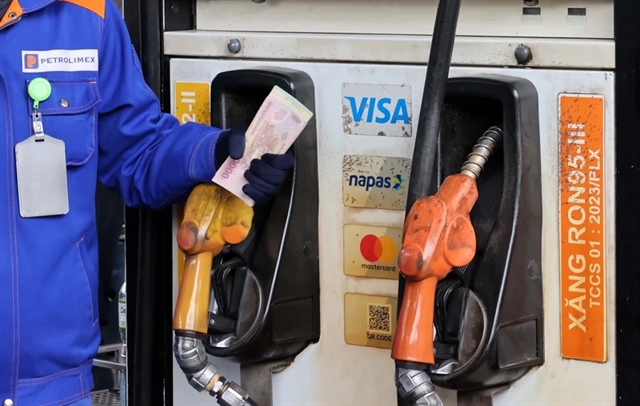 Economy
Economy

 |
| Electronic payments are available at thousands of fuel retail outlets across the country. VNA/VNS Photo |
HÀ NỘI In a move to modernise Việt Nam’s tax system and address challenges posed by e-commerce and digital businesses, Prime Minister Phạm Minh Chính has issued a directive to drive ahead measures to enhance tax collection efficiency.
Directive No 129/CD-TTg emphasises the adoption of electronic invoicing and robust monitoring systems to create a fair, transparent and consumer-friendly business environment.
The Directive addresses the issue that, although the nationwide electronic invoicing system has streamlined tax administration and made life easier for businesses, gaps remain in the adoption of electronic invoices, especially among retail outlets and local businesses. The rapid growth of e-commerce further complicates tax collection and State oversight, requiring additional measures.
The Prime Minister has tasked the Ministry of Finance with public education campaigns highlighting the benefits of electronic invoicing. These campaigns aim to increase awareness among businesses and taxpayers, fostering a culture of compliance with tax regulations.
Businesses, particularly in key retail sectors such as dining, consumer goods and fuel sales, will receive support to transition to electronic invoices generated from cash registers, simplifying invoicing processes and reducing tax evasion.
He called for stronger collaboration between governmental ministries and the Ministry of Public Security to ensure accurate and timely tax collection. Data sharing will play a critical role in identifying and addressing tax irregularities in e-commerce and other digital platform activities.
Regular audits will target fuel retail outlets and other sectors prone to non-compliance. Businesses using point-of-sale systems or other software to issue invoices will be closely monitored, with violations subject to strict penalties. Offenders’ details will be publicly disclosed to deter misconduct.
The Directive requires the Ministry of Industry and Trade to implement policies governing e-commerce transactions that will be refined to facilitate tax administration. Fuel trading enterprises will also be required to comply with invoicing regulations and cooperate with tax authorities. Efforts will focus on integrating national identification data with tax systems and developing digital payment solutions, such as e-wallets integrated with the VNeID government app.
Provincial and municipal authorities are tasked with promoting the use of electronic invoices, encouraging consumers to request receipts and overseeing compliance in fuel retail outlets. By March 2025, all fuel retail outlets nationwide must have implemented automated invoicing processes.
Việt Nam has been actively implementing an electronic invoicing (e-invoice) system as part of its digital transformation strategy, aiming to modernise tax administration, enhance compliance, and support economic development.
According to a Government report, by mid-2023 99 per cent of businesses and organisations in the Southeast Asian country had transitioned to using e-invoices. The electronic system has generated over 4.5 billion e-invoices since its implementation. VNS